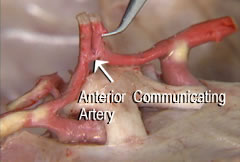Library catalog
Medical databases
The library catalog and the contents of the following databases can be searched using the Primo scientific search engine
Database search
Select the type of database (press Ctrl to select several categories)
The library catalog and the contents of the following databases can be searched using the Primo scientific search engine
Select the type of database (press Ctrl to select several categories)
3D anatomical Atlas: Complete Anatomy - an advanced, three-dimensional platform for learning anatomy. In order to use the product, you need to download the application to your device (laptop, tablet, phone), register an account and activate access using the following code:
AccessMedicine (ACM) is an online medical resource that provides students with the tools they need to excel in basic and advanced studies, clerkships, and crucial test prep. ACM provides residents, nurse practitioners, and physician assistants with interactive content, self-assessment, and leading medical texts to enhance decision-making at the point-of-care. It and allows for practicing physicians to brush up on their medical knowledge to ensure best patient outcomes.
It includes a complete full-text library of clinical and basic science textbooks, including Harrison’s Principles of Internal Medicine, CURRENT Medical Diagnosis & Treatment, The Color Atlas of Family Medicine, Fitzpatrick’s Dermatology in General Medicine; Hurst’s The Heart; LANGE Basic & Clinical Science Library; Principles and Practice of Hospital Medicine; Schwartz’s Principles of Surgery; Tintinalli’s Emergency Medicine; Williams Obstetrics and many others.
Acland’s Video Atlas of Human Anatomy is a teaching tool that presents a detailed view of human anatomy in high-quality video. It was prepared for medical, dentistry, and health sciences students who need a precise and structured source on anatomical knowledge.
As you watch, the fact that the specimen rotates lets you to see it as a fully three-dimensional object.

The Video Atlas images are direct video recordings of real human anatomic specimens. The cadavers used were not stiffened or discolored by embalming. Their tissues retain the color, texture, and mobility of the living body.

The Video Atlas shows moving structures - muscles, tendons and joints - making the same movements that they make in life.
The dissections were done by skilled clinical anatomists, using the finest surgical techniques. Studio lighting accentuates the shape and definition of the structures. A black background enhances their outline.

A concise narration runs throughout the program, using the simplest possible language. The words you hear correspond exactly with what you see in the video. The names of structures, when seen for the first time, appear on screen as a learning reinforcement.

Każdy moduł rozpoczyna się od omówienia kości danego obszaru, następnie stawów i ich ruchów, później mięśni, a na końcu naczyń i nerwów. To podejście pomaga w systematycznym rozumieniu anatomii, od elementów najbardziej podstawowych do tych bardziej złożonych.
Throughout each program there are brief review sections that let you test yourself on what you have seen in the preceding 10-15 minutes.

The content can be searched by anatomical regions and parts, as well as by the A-Z index. Run times are listed for each part. You can start, stop, and pause at any time while viewing a video.
Embase is the world's largest biomedical abstract database of peer-reviewed, scientific literature, press publications and conference proceedings, used for biomedical desk research, systematic medical literature reviews and drug and medical device safety research.
Embase provides comprehensive coverage of publications:
Thanks to its intuitive interface and automated query builders (eg PV, PICO), Embase supports creating complex search strategies in a matter of minutes.
More on the info page: https://www.elsevier.com/solutions/embase-biomedical-research
Karger Publishers is a publisher of medical scientific publications operating since 1890, based in Basel, Switzerland. The publishing house meets the information needs of the scientific community and clinicians with high-quality publications in the field of health sciences. With about 80 subscription-based and 30 Open Access journals Karger’s titles comprise nearly the entire medical spectrum: https://www.karger.com/Journal/IndexListAZ
Reaxys helps chemists and life sciences scientists find data and information faster.
Reaxys is based on data from Beilstein, Gmelin databases and more than 16,000 high-quality, peer-reviewed life science journals with an emphasis on chemistry and chemistry-related sciences such as pharmacy.
Reaxys holds patents from 105 patent offices and a database of commercially available substances from approximately 550 suppliers around the world.
The database contains information and data extracted from the literature for over 150 million chemical substances - their properties, bioactivities and synthetic routes. It contains over 55 million chemical reactions and 500 million facts about chemical compounds.
In the field of biochemistry (Reaxys Medicinal Chemistry module) one will find over 40 million bioactivity data points for over 33,000 pharmacological targets and 34 million substances.
The new, intuitive interface supports fast searching and the advanced search "query builder" supports building very complex queries in one step using a graphical, easy-to-use interface.
More at info page: https://www.elsevier.com/solutions/reaxys
The Cochrane Library is a collection of databases that contain different types of high-quality, independent medical evidence, helping healthcare professionals, medical researchers and policy makers to improve healthcare knowledge and decision making.
It provides regularly updated and synthesized evidence across a wide-range of healthcare topics in one reliable and easy-to-search resource, including:
Your access to the Cochrane Library offers you the latest healthcare evidence, the moment it publishes. To ensure you are viewing the latest scientific version of the record we recommend selecting the Cochrane Library when accessing through your institutional account.
UpToDate is an electronic system that provides medical personnel with access to daily updated medical information based on Evidence Based Medicine.
It contains nearly 12,000 medical topics, over 9,300 categorized recommendations and 35,000 graphic elements in 25 specialties.
Therefore, UpToDate is both an invaluable Clinical Decision Support system as well as a valuable educational tool.
UpToDate is created by a global network of over 7,100 experts who combine guidelines from the latest published scientific research with their unique clinical expertise.
Thus, they ensure that the content on UpToDate is trustworthy and help clinicians make the most appropriate clinical decisions, even when scientific evidence is missing or inconclusive.